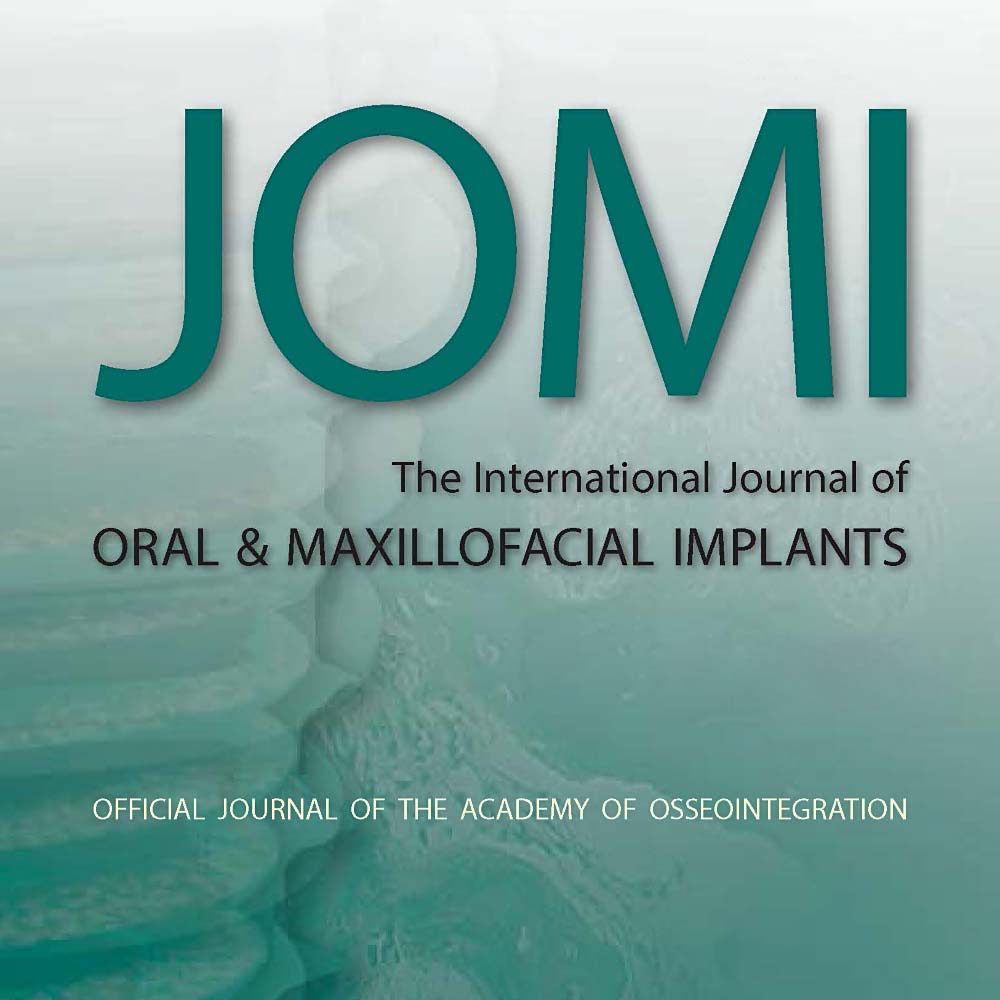
Internal- vs External-Connection Single Implants: A Retrospective Study in an Italian Population Treated by Certified Prosthodontists
Abstract
Purpose: The design of an implant connection that allows prosthetic suprastructures to be attached to implants has long been debated in the dental literature. The goal of this retrospective study was to evaluate the 5-year clinical results for a large number of single implants restored by certified prosthodontists in an attempt to establish whether different clinical outcomes could be detected for external- or internal-connection implants.
Materials and methods: All single implants with internal or external connections inserted in 27 private dental practices from January 1, 2003 to December 31, 2007 were evaluated. An initial statistical analysis was performed to describe the sample population at baseline and then to compare the two types of implant-abutment connection configurations and their clinical outcomes. All data were statistically analyzed with STATA12 (StataCorp).
Results: Twenty-eight of the 85 active members of the Italian Academy of Prosthetic Dentistry (AIOP) participated in this study. The sample included 1,159 patients and 2,010 implants. Of the implants, 75 were dropped because there was no information about follow-up. Of the remaining implants, 1,431 (74.0%) were followed for at least 5 years, and 332 implants (17.2%) were followed for more than 8 years. Nearly 99% (98.9%) of the implants survived. The difference between the survival frequencies of the two types of implant-abutment connection configurations was not significant for each negative event (log-rank test, P > .05). There was no difference between the two types of implants regarding restoration fracture, implant screw loosening, and peri-implant disease.
Conclusion: Within the limitations of this study, it can be suggested that there is no difference in clinical outcomes of single restorations joined to internal- or external-connection implants.